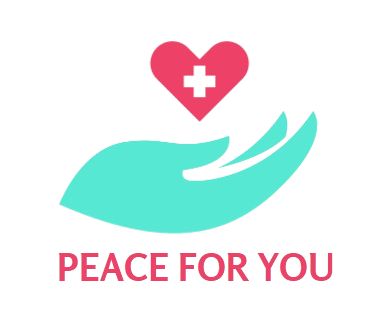
Getting a good night’s sleep is essential for overall health and well-being. However, millions of people around the world struggle with sleep disorders, which can severely impact daily life. Understanding sleep disorders symptoms is the first step to identifying if you’re affected. In this article, we will explore common sleep disorders symptoms, what to look for, and when to seek medical advice.
1. What are Sleep Disorders?
A sleep disorder is a condition that disrupts your normal sleep patterns, making it difficult to get restful sleep. These disorders can range from insomnia, where a person struggles to fall asleep, to more serious issues like sleep apnea, which can interrupt breathing during sleep. There are over 80 different types of sleep disorders, but most of them share common sleep disorders symptoms.
Recognizing sleep disorders symptoms early can help you address underlying health issues or lifestyle habits that contribute to the problem. Some of the most common sleep disorders include:
- Insomnia
- Sleep apnea
- Restless legs syndrome
- Narcolepsy
Each of these disorders comes with its own set of symptoms, but many of them share overlapping characteristics, which can make self-diagnosis tricky.
2. Common Sleep Disorders Symptoms to Watch For
Identifying sleep disorders symptoms is crucial for understanding whether you may have a sleep disorder. Here are some of the most common sleep disorders symptoms that affect many people:
a. Difficulty Falling Asleep or Staying Asleep
One of the most recognizable sleep disorders symptoms is the inability to fall asleep or stay asleep throughout the night. People suffering from insomnia often spend hours tossing and turning in bed without being able to drift off. Similarly, those with sleep apnea may wake up multiple times due to breathing issues. This can lead to fragmented sleep and feeling unrested the next morning.
b. Excessive Daytime Sleepiness
Another common sleep disorders symptom is excessive daytime sleepiness. If you find yourself struggling to stay awake during the day despite getting what seems like enough sleep at night, it could indicate a sleep disorder like sleep apnea or narcolepsy. Feeling sleepy all the time can also interfere with your ability to concentrate, make decisions, and function normally.
c. Unusual Movements or Behaviors During Sleep
People with certain sleep disorders, such as restless legs syndrome or REM sleep behavior disorder, may experience unusual movements or behaviors during sleep. This includes things like jerking limbs, kicking, or even talking and shouting during sleep. These sleep disorders symptoms can disturb both the person suffering and their partner.
d. Breathing Problems While Sleeping
Another significant sleep disorders symptom is irregular breathing during sleep. This is most common in people with sleep apnea, where the airway becomes blocked, leading to periods where they stop breathing. If you or someone else notices gasping for air, loud snoring, or choking sounds during sleep, this could be a sign of sleep apnea. Addressing these symptoms early is critical as untreated sleep apnea can lead to serious health issues like heart disease and high blood pressure.
3. How Sleep Disorders Affect Your Health
Untreated sleep disorders symptoms can lead to various health problems, both mental and physical. If you are experiencing sleep disturbances regularly, it’s essential to understand the potential risks.
a. Mental Health Issues
People who suffer from sleep disorders symptoms are at a higher risk of developing mental health issues like anxiety and depression. A lack of proper sleep can make it difficult to regulate emotions and deal with daily stressors. Over time, chronic sleep deprivation can exacerbate feelings of sadness, worry, or hopelessness.
b. Cardiovascular Problems
Sleep disorders symptoms like interrupted breathing (such as in sleep apnea) can increase the risk of developing cardiovascular issues. Poor sleep has been linked to high blood pressure, stroke, and heart attacks. Addressing these symptoms early on can help protect your long-term heart health.
c. Weakened Immune System
Your body relies on sleep to repair and rejuvenate itself. Chronic sleep deprivation from sleep disorders symptoms can weaken your immune system, making you more susceptible to colds, flu, and other infections. Over time, lack of sleep can even affect your ability to recover from illnesses.
d. Weight Gain and Metabolism Issues
People who suffer from sleep disorders symptoms often find it difficult to maintain a healthy weight. Sleep deprivation disrupts the hormones that regulate hunger and appetite, leading to overeating and weight gain. Additionally, lack of sleep can slow down your metabolism, making it harder to burn calories.
4. When to Seek Medical Help for Sleep Disorders
If you have been experiencing sleep disorders symptoms for a prolonged period, it’s crucial to seek professional help. While occasional sleep troubles are normal, consistent patterns of disrupted sleep can signal a more significant issue that needs medical attention.
a. Monitoring Your Symptoms
Keep track of your sleep patterns and any sleep disorders symptoms you experience. Document how often you wake up during the night, whether you feel rested in the morning, and any unusual behaviors (such as snoring or jerking limbs). This information will be helpful when discussing your symptoms with a healthcare provider.
b. Consult a Sleep Specialist
If your sleep disorders symptoms are affecting your quality of life, consult a sleep specialist or your primary care doctor. They may recommend a sleep study, where your sleep is monitored in a controlled environment. These studies can help diagnose conditions like sleep apnea or narcolepsy.
c. Treatment Options
There are various treatment options available for sleep disorders symptoms, depending on the underlying condition. Lifestyle changes like establishing a regular sleep schedule, reducing caffeine intake, and creating a relaxing bedtime routine can help alleviate mild symptoms. For more severe cases, medical treatments such as CPAP machines for sleep apnea or medications for insomnia may be prescribed.
Conclusion
Recognizing sleep disorders symptoms is the first step in managing your sleep health. Whether it’s difficulty falling asleep, excessive daytime fatigue, or unusual movements during sleep, these symptoms can indicate an underlying sleep disorder. Ignoring these symptoms can have a serious impact on your physical and mental well-being. If you suspect you may have a sleep disorder, monitoring your symptoms and seeking medical advice is crucial to restoring restful and healthy sleep.
